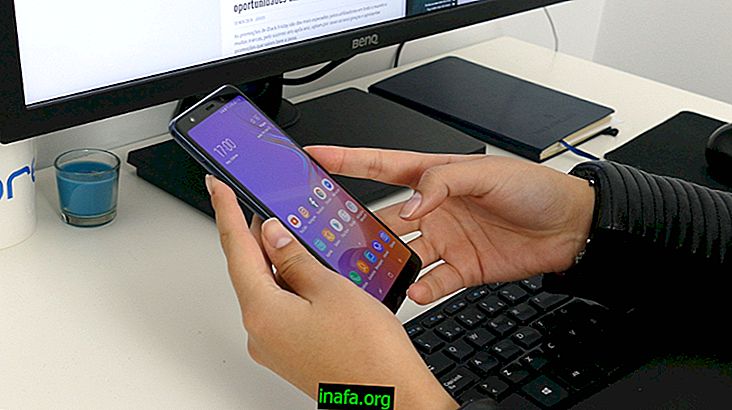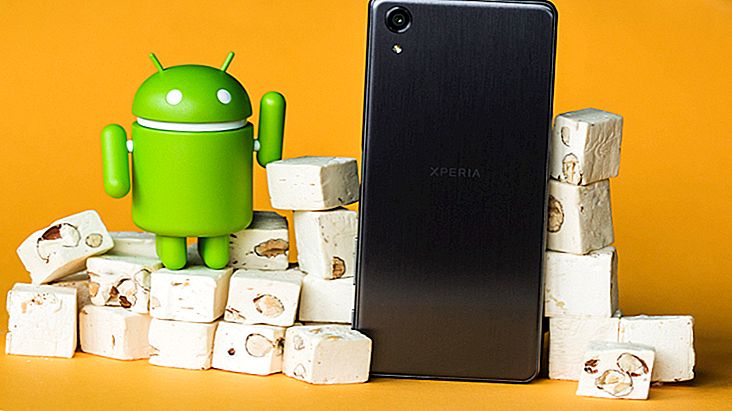14 reasons to switch from HD to SSD on PC
When SSD came on the market a few years ago, its technology impressed those who were tired of the limitations of ordinary hard drives, but the new drive was still unviable for most people. The biggest problems consisted of certain aspects: little storage space, little product knowledge and high price. Over time, technology has evolved and more companies have been creating their own SSDs with more space and less cost. The advantages over hard drives these days are even more noticeable and you can check out our top 14 reasons to swap your old drive for a PC SSD right below!
1. It's faster

The most obvious reason for using an SSD is that it is extremely faster than a regular hard drive. In fact, it is up to 100 times faster to access files stored on it than a hard drive.
This causes your operating system to start up shortly and make software run without any choking or slowing down. If you stop to think about the total time you spend in front of your PC waiting for a program to open or do a heavier action, you can imagine that the difference will be very noticeable.
2. Facilitates multitasking
As we mentioned above, SSD is faster and more powerful, which also makes it easier for those who have to deal with multiple PC tasks every day. This means you will be able to use editing software while browsing the internet and listening to music on Spotify without noticing any slowness. All this thanks to the short time it takes SSD to access all these files.
3. Saves your battery
If you have a notebook, we are sure that in many situations the battery will be poor, especially after a few months of use. Part of this is due to the heavy use of heavier software, but we have to take into consideration that the HD itself consumes much more power than you think.
The SSD has the advantage of having no mechanical parts having to rotate constantly and can offer good battery saving for your PC.
4. Does not heat up easily
As a mechanical part, the hard drive is in constant motion and this can cause overheating on occasion. This warming can be felt especially by notebook owners, but the real problem is that it can cause long term damage.
Because the SSD has no mechanical parts and no moving parts, it obviously has no heating problems. Of course it will still emit heat, but not in the same way.
5. It's not fragile

Here's another problem for someone who has a notebook, as it is common to end up breaking or damaging the hard drive with a simple crash of the device or even a slight tap on the underside of the computer.
This is because such damage usually occurs exactly when the hard drive's internal disk is running to access some information or file. In the middle of the process, your player can come into sudden contact with the disc and ruin the hard drive irreparably.
Because the SSD is not mechanical, it does not, and it turns out to be much more resilient even when dropped or hit. Of course, we don't recommend not being careful about SSD, but it certainly has a better chance of surviving such minor accidents.
6. Flexible use
The good thing about SSD is that its use is very flexible and can easily adjust to what you need on a daily basis. If you do not want to replace your hard drive with it, you can simply use it as a flash drive to perform certain tasks more quickly, for example.
7. Good for PC games
If you like to play PC games, there is no better way to do that than with an SSD. Games installed on it will read much faster and have shorter load times.
This can also help improve overall game performance as long as you have the other components needed to run it, of course.
8. Longevity
Because the hard drive is a very fragile mechanical part, you can't rely so much on its longevity and durability, even if it's taken care of over the years. With an SSD, you will have a much better guarantee and the certainty that you will not have to spend money constantly when you have to change this part.
9. Less Noise
Because the SSD has no constantly moving parts like the HD, you'll never hear that annoying disk noise spinning inside the PC. This can be especially useful when using your PC at night and you don't want to disturb anyone with excessive noise.
10. Easy to install

Swapping a hard drive for an SSD may seem super complicated for those who barely had to swap a hard drive from their computer in life, but it's a lot easier than you might think.
Just turn off your PC, open its case or lid (if it is a notebook), carefully remove the hard drive and insert the SSD into place. If two inputs, you can even use the SSD along with the HD.
11. Prices are falling
One of the biggest negatives of SSD has always been its price. Because it is a relatively new technology and so much more efficient than its predecessor, it is clearly far more expensive.
Fortunately, with more companies producing their SSD models on the market and technology becoming more common, these prices are finally falling. It's not cheap yet, but it's more affordable and easier to buy with a little planning.
12. There are more models available
As we mentioned above, more companies are making several SSD models, which increases the part's diversity and the number of options you'll have when buying one.
This way you can search different brands and quantities of storage instead of getting stuck with a single reliable model as it was a few years ago.
13. Can you use a hard drive together
If you're not happy with SSD's low storage options today, you can do something very simple: use a hard drive together. This can be done on the desktop if it has two drive slots or on a notebook when using an external hard drive.
This way you can install all programs on the SSD while storing the files (whether documents, photos, videos, etc.) on your hard drive.
14. There is no magnetism

How hard the drive works depends entirely on magnetism, whether it is to read or write new data to your mechanical disk. The biggest problem with this is that more intense magnetism (such as stronger magnets) can simply erase all the information on a hard drive. The SSD is not dependent on or affected by magnetism, and obviously not at the same risk.
What did you think of SSD compared to HD?
Can you get a better idea of why it's better to swap your old hard drive for an SSD? Don't forget to leave your comment telling us what you think.



